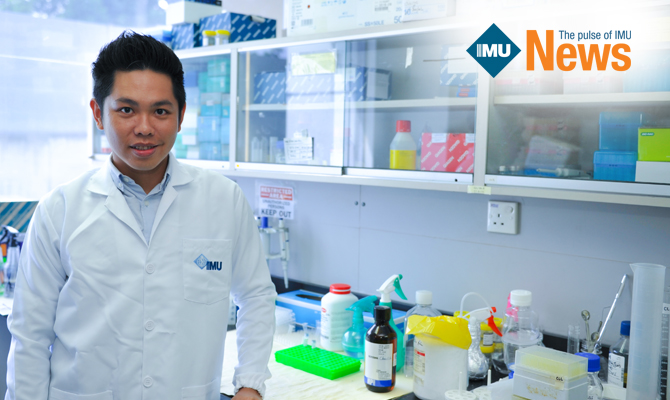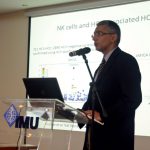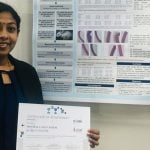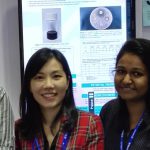8-9 September, 2016 – A Master of Science in Medical and Health Sciences (by Research) student from the International Medical University (IMU), Wong Yi Hao won the Best Presentation Award in the 18th International Conference on Microbiology and Biotechnology, held in Singapore. The title of his presentation was Possible Involvement of DNA-methyltransferases and Histone Deacetylases in the Regulation of Virulence Potential of Acanthamoeba castellanii.  Acanthamoeba is one of the most common free-living protozoa (single-celled organisms with animal-like behaviours) which is ubiquitously distributed in the environment. They are frequently found in soil, air, sewage, seawater, chlorinated swimming pools, domestic tap water, bottled water, dental treatment units, hospitals, air-conditioning units, and contact lens cases. Some species of Acanthamoeba can fatally cause encephalitis (inflammation of the brain) in patients with low immune systems and keratitis (infection of the cornea) resulting in blindness in contact lens wearers. Approximately 24 species have been identified but only the A. castellanii, A. polyphaga and A. culbertsoni are commonly associated with human infections. However, to date, how Acanthamoeba causes these diseases remains unclear. Wong Yi Hao, under the supervision of Prof Stephen Ambu, Prof Leong Chee Onn, and Dr Chan Li Li, has been investigating the gene expression of two enzymes, namely DNA-methyltransferases (DNMT) and histone-deacetylases (HDAC) in Acanthamoeba. The objective of the study is to assess whether there is correlation between the concentrations of these two enzymes with the virulence of Acanthamoeba, which is the capacity of the organisms to cause diseases. The findings showed that higher levels of DNMT increased the virulence of the organism. Interestingly, the virulence of Acanthamoeba increased when the levels of the other enzyme HDAC were low.
Acanthamoeba is one of the most common free-living protozoa (single-celled organisms with animal-like behaviours) which is ubiquitously distributed in the environment. They are frequently found in soil, air, sewage, seawater, chlorinated swimming pools, domestic tap water, bottled water, dental treatment units, hospitals, air-conditioning units, and contact lens cases. Some species of Acanthamoeba can fatally cause encephalitis (inflammation of the brain) in patients with low immune systems and keratitis (infection of the cornea) resulting in blindness in contact lens wearers. Approximately 24 species have been identified but only the A. castellanii, A. polyphaga and A. culbertsoni are commonly associated with human infections. However, to date, how Acanthamoeba causes these diseases remains unclear. Wong Yi Hao, under the supervision of Prof Stephen Ambu, Prof Leong Chee Onn, and Dr Chan Li Li, has been investigating the gene expression of two enzymes, namely DNA-methyltransferases (DNMT) and histone-deacetylases (HDAC) in Acanthamoeba. The objective of the study is to assess whether there is correlation between the concentrations of these two enzymes with the virulence of Acanthamoeba, which is the capacity of the organisms to cause diseases. The findings showed that higher levels of DNMT increased the virulence of the organism. Interestingly, the virulence of Acanthamoeba increased when the levels of the other enzyme HDAC were low.
The study showed that diseases caused by Acanthamoeba can be tackled by regulation of the levels of DNMT and HDAC. The findings from this study are crucial as it serves the basis for future development of gene therapy to cure the diseases caused by Acanthamoeba.









